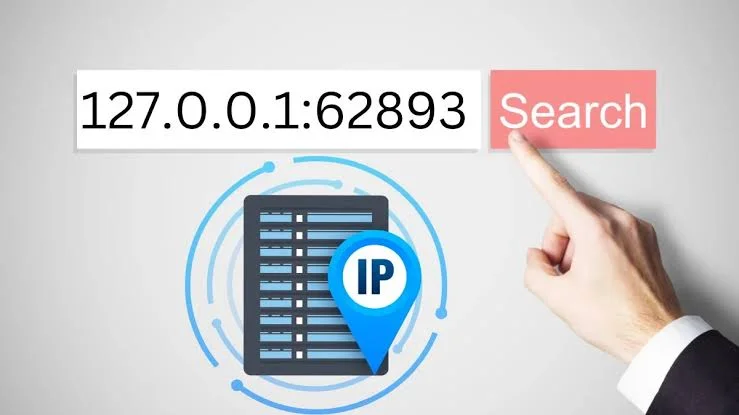Encrypted addresses such as 127.0.0.1 and 127.0.0.1:62893 can sometimes seem complex, especially in the context of software and network development. However, understanding these addresses is easier than you might think. With a bit of insight, you’ll find them straightforward and invaluable for various tasks.
What Is the IP Address 127.0.0.1:62893?
The address 127.0.0.1 is commonly referred to as the “loopback” or “localhost” address. It is a special IP address that points back to the same machine you are using. This address is essential for testing and development purposes without involving external networks.
When combined with additional numbers after a colon (e.g., :62893), these numbers represent a port. A port acts as a gateway within the computer, facilitating communication between different applications and processes. For instance, in the address 127.0.0.1:62893, “62893” is the port through which the connection is established.
How Does 127.0.0.1 Work?
When using the IP address 127.0.0.1, the system’s TCP/IP stack routes data back to the originating machine rather than sending it over the network. This allows applications to communicate with themselves or test software in a controlled environment. For example, if a service is listening on port 62893, you can send data to it using the address 127.0.0.1:62893.
Benefits of Using 127.0.0.1
- Network Diagnostics: The loopback address can be used to verify whether the network stack on a device is functioning properly.
- Local Service Access: It enables communication with locally running services without needing an active network connection. The data remains confined to the device.
- Enhanced Security: By filtering messages routed through the system’s localhost, it helps protect against unauthorized access and malicious network activity.
- Testing Server Responses: Developers can emulate server interactions locally, ensuring functionality before deployment.
- Streamlined Software Development: Using 127.0.0.1, developers can measure application response times and debug errors without depending on external servers or internet connectivity.
- Safe Experimental Environment: The localhost address provides a secure space for testing new features, enabling experimentation without risking damage to production systems.
- Faster Communication: Communication via 127.0.0.1 is significantly faster than reaching out to a remote server, as it bypasses external networks entirely.
How to Find Your Computer’s IP Address
For Windows:
- Open the Start menu.
- Type CMD and open the Command Prompt.
- Enter
ipconfigto display the system’s IP address.
For Linux:
- Open the terminal using Ctrl + Alt + T.
- Type
ifconfig(orip aon newer distributions) and press Enter.
The displayed IP address can be copied and used to access localhost services in your browser or development environment.
Accessing Localhost in Your Browser
Once you have your IP address, enter it into your browser’s address bar. For example:
- 127.0.0.1 – Displays the default localhost page.
- 127.0.0.1:62893 – Connects to the service running on port 62893.
If the localhost page fails to load, it might indicate issues with the server (e.g., Apache). Restart the server and try again.
Frequently Asked Questions (FAQs)
1. Can I make HTTP requests locally without a network connection? Yes. The localhost address enables your computer to communicate with itself, even when disconnected from the internet.
2. How does localhost differ from IPv6 addresses? Localhost, represented as 127.0.0.1, is the IPv4 loopback address. IPv6 loopback addresses use a different format, such as ::1. Both serve the same purpose but operate under different protocols.
3. Can loopback addresses block websites? Yes. By editing the system’s hosts file, you can redirect specific websites to 127.0.0.1 to block access. Here’s how:
- Open a text editor (e.g., Notepad) as an administrator.
- Navigate to the hosts file (usually located in
C:\Windows\System32\drivers\etc\hostson Windows). - Add an entry like
127.0.0.1 www.example.comand save the file. - Restart your computer to apply changes.
4. Can System Restore fix proxy-related errors involving 127.0.0.1? Yes. If a recently installed program or malware is causing proxy errors, performing a System Restore can revert your system to a previous state, potentially resolving the issue without affecting personal files.
Final Thoughts
The IP address 127.0.0.1 and its variations, such as 127.0.0.1:62893, are powerful tools in software development and network troubleshooting. They provide a secure, efficient, and flexible environment for testing and development, ensuring that applications are robust and reliable before deployment. By understanding how localhost functions, you can unlock its full potential and enhance your workflow.


